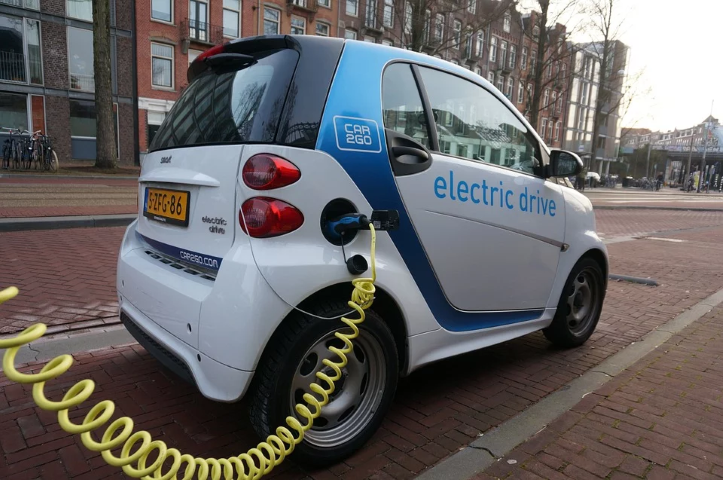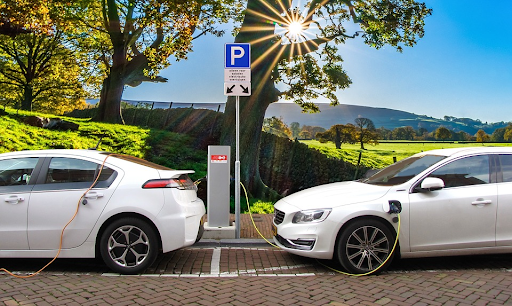
While some might think of electric cars as a new invention that has only been introduced to the market recently, EVs or electric vehicles aren’t a modern-day invention. A series of breakthroughs have led to the production of these vehicles; it started with the electric battery, which was invented back in the 18th century. This invention led to the introduction of the first electric car. However, it wasn’t until the 1870s that EVs were practically used. The reason why we didn’t start considering EVs sooner is that gas-powered vehicles like this 1958 chevy apache have previously overshadowed these types of cars until recently.
Now, technological strides have made it possible to bring down the prices of EVs and offer easier solutions for charging them like the use of electric charging cables from EV Cable Shop . People have come to realize that EVs are more eco-friendly and practical in different ways. If you are considering trading in your gas-powered car for an electric one, and you are still unsure about this huge change, you should weigh down the pros and cons before you make a final decision.
Disadvantages of EVs
-
Charging Station Availability Is Inconsistent
Most people prefer charging their cars at home before they take it out for a ride. This is more convenient in terms of cost-efficiency and time-saving. However, if you live in an area where electric cars have charging stations, depending on them can be convenient while you’re on the road. If you do not, then it’s important to calculate the duration of your trip and your battery life. You will usually know how long you have before your car battery starts running low; however, accidents happen. You might leave the lights on for a while and forget about them, or have the AC set on high for long periods of time. Overcoming these obstacles is quite simple by keeping emergency equipment handy, along with an extra battery that is.
This is one issue that regular car owners will not experience as gas stations are just everywhere. And when it comes to dead batteries, a pair of jumping cables and a good samaritan on the road can fix it in an instant. Although there are some things you need to know before jumping in a car and this complete guide is the best place to start. Despite the advancements of electric vehicles, this is just one thing that you cannot do with them if your battery ends up dying on you.
-
Some are Considered an Expensive Initial Investment
While the running costs for EVS are considered to be relatively low considering the maintenance and charging costs, some models can come with a hefty price tag. This means that you will have to invest a relatively big portion of your savings in an EV if you are interested in getting one.

Advantages of EVs
-
They are Considered More “Green”
Many environmentally conscious consumers purchase electric cars just for the reason that they are better for the environment. The harmful emissions that result from the combustion process in typical cars, such as NOx emissions, harm the environment in different ways. Electric cars, on the other hand, don’t have an exhaust system or combustion process that could result in any harmful emissions. Making the switch to electric cars instead of gas-powered vehicles reduces your carbon footprint.
-
They are Cheaper
In the past, electric cars weren’t available due to their high prices. Nowadays, you can find many cheap options and models. Other than the car cost, running an electric car is much cheaper than paying for gas. Electricity costs much less than gasoline – up to one-third the cost of gas, while some people resort to installing solar panels as a clean and cheap source of energy.
-
Less Frequent Maintenance
The first aspect that you’ll notice will make a huge difference in your maintenance routine for the car is oil changing. Electric vehicles don’t run on oil, which means that you won’t have to keep track and change the oil every once in a while. Also, you can forget about the tedious maintenance routine for the combustion engine. Another upside to EVs is that their brakes don’t experience wear and tear as frequently as conventional cars do.
-
Less Noise and Faster Commute
Have you ever noticed how loud the noise level is in the city? You can rest assured that with EVs, you don’t have to suffer from this problem anymore. EVs have quiet engines. Not only are they not as noisy as conventional cars, but EVs also allow you to take the HOV lane. This lane is also known as the “carpool” lane, and you can use it even if you are driving solo, which means less traffic and a faster commute.
Just like any technological advances and new inventions, electric cars have their advantages and disadvantages. The choice of switching from a conventional car to an electric vehicle relies mainly on your preferences. Make sure to take the time and effort to research the subject and weigh its pros and cons before you make a decision.










